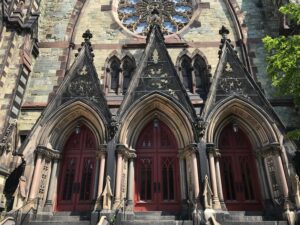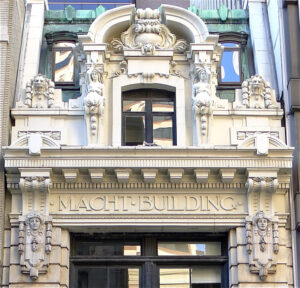
Maple Hill, built in the 1860s for Robert Poole, stood between what is now Union Avenue and 36th Street, below Falls Road. Image Courtesy Baltimore County Public Library.
My Dear Maple Hill,
Unremarkable rowhouses now line the rolling hills where the conifers of your grand estate stood. The weeping willow, that persistent antebellum symbol, is long gone too, and your winding carriage path is now a straight road lined with too many cars. I should admit (embarrassed as I am to tell you) that I live in one of these unremarkable rowhouses.
I may as well tell you too about my home, which after much speculation and not much analysis I place somewhere at the center-left of your estate. My yard is an eyesore, more Jurassic Park than antebellum South. A ghetto palm grows out of my garden that refuses to die—that stinky, pervasive plant synonymous with vacant lots and that Europeans in the 18th century called Tree of Heaven. Interstate 83 obscures the otherwise quiet valley that was your industrial domain, a highway I think you would agree should be demolished and forgotten.
I’m sorry if this all sounds like desecration. You were grand but also unattainable. Who could have lived within you after Robert Poole died? Who could have kept your rolling hills, your gardens, your grand pavilions? Poole was industrious and philanthropic, so it’s at least fitting that a handsome Collegiate Gothic school was built on your grounds. From my window its cupola rises over the ascending roof-line of rowhouses, a scene that in morning light makes me think of a Hopper painting, and I mean that as a compliment.
I love knowing that should a home time machine come to market I could turn back the dial and appear right in front of you. How I would love to explore you, to sip iced tea on your wide wrap-around porch, to survey the Jones Falls Valley from your dormers. I’m in awe of your splendor. I want to be the person in the horse-drawn carriage ascending your winding path.
Love,
Your Secret Admirer
Help us continue the Love Letters to Baltimore Buildings series by submitting your own today! Visit http://baltimorearchitecture.org/love-letters-to-baltimore-buildings/ for details on how to submit.


